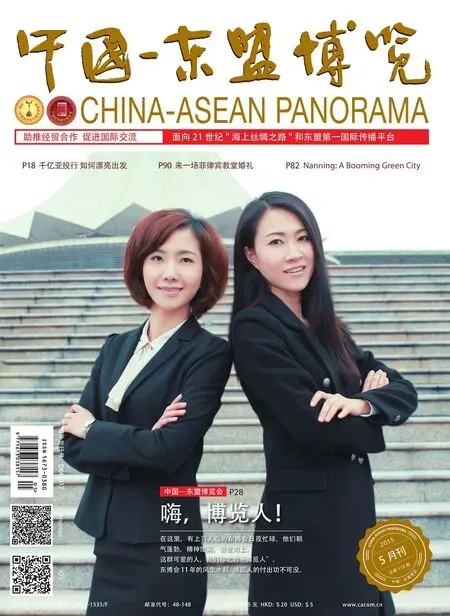The 21st ASEAN Economic Ministers’ Retreat 28 February -1 March 2015 Kota Bharu, Malaysia
The 21st ASEAN Economic Ministers’ Retreat 28 February -1 March 2015 Kota Bharu, Malaysia

ASEAN-China Centre (ACC) would like to share the results of the 21st ASEAN Economic Ministers' Retreat which was held on 28 February-1 March 2015 in Kota Bharu, Malaysia. The Retreat was chaired by Dato' Sri Mustapa Mohamed, Malaysia's Minister of International Trade and Industry. Malaysia is the Chair of ASEAN for 2015.
The news was posted on the ASEAN Secretariat's Website and provided useful information in relation to the ASEAN economic outlook in 2015, progress made in the formal establishment of the ASEAN Economic Community (AEC) by end of 2015, development on the regional trade talks with ASEAN's Dialogue Partners under the Regional Comprehensive Economic Partnership (RCEP), and the vision of AEC beyond 2015.
The ASEAN Economic Ministers (AEM) expressed confidence that the region's economies will maintain their momentum in 2015 despite the global economic and geopolitical challenges. They emphasised that the deepening economic integration in the region would serve as a buffer in helping ASEAN progress and prosper.
Economic Outlook for ASEAN
The Ministers "expect ASEAN's economic performance to improve in 2015 to 5.1%, above the 3.5% global growth projection". They based this on the stronger demand in advanced economies, energized by the robust US recovery and several policy stimulus measures in the Eurozone and Japan. Also, "the region's domestic demand could get a further boost from falling oil prices with higher purchasing power for consumers, lower input costs for producers and greater fiscal space".
They cautioned, however, that falling oil prices could affect export earnings and government revenue for netoil-exporting economies in ASEAN. The Ministers also highlighted the concern posed by currency volatility, including possible capital fl ow reversals.
"This is where the implementation of ASEAN's regional economic integration can help Member States overcome the challenges posed by global economic volatility. In 2013, intra-ASEAN trade amounted to USD 608.6 billion, accounting for 24.2% of total trade of the region, compared with USD 458.1 billion in 2008 when the ASEAN Economic Community (AEC) Blueprint was first implemented. Similarly, total foreign direct investment (FDI) infl ows to ASEAN amounted to USD 122.4 billion in 2013, representing the highest FDI fl ows into a region, globally. Intra-regional FDI accounted for a signifi cant share of 17.4% of total FDI flows into the region in 2013".
Establishing the ASEAN Economic Community
The Ministers welcomed the steady progress made in implementing the AEC Blueprint, in particular the keymeasures prioritised by Member States. "Benefits are already flowing to ASEAN businesses and consumers, from significant tariff liberalisation, progress in trade facilitation measures such as self-certification, simplifi cation of customs procedures, and the Mutual Recognition Arrangements on the movement of skilled professionals in the region. ASEAN has also put in place legal structures on competition, consumer protection and intellectual property, contributing to an improved environment for business".
"The formal establishment of the AEC by end-2015 marks a major milestone in ASEAN's effort to fulfil the goal of an integrated region, encapsulated under the rubric of One Vision, One Identity, One Community. The implementation of the AEC measures does not mean that ASEAN will become a single economic entity by 1 January 2016, rather it sends a strong signal that positive measures have been put in place towards a more liberalised and integrated economic region".
The Ministers highlighted that the focus for this year would be on further simplification of Customs procedures, harmonisation of standards, further liberalisation of services, enhanced trade facilitation, and conclusion of the services and investments portion of the ASEAN-Japan Comprehensive Economic Partnership. The Ministers also discussed the progress in developing the SME Strategic Action Plan, with a specific focus on micro and small enterprises, and the promotion of globally accepted regulatory practices.
Pushing Ahead with Regional Trade Talks
The Ministers noted that seven rounds of negotiations have been completed since the commencement of the Regional Comprehensive Economic Partnership (RCEP) talks in 2013. When concluded, RCEP will link together the economies of ASEAN, Australia, China, India, Japan, Korea and New Zealand. The envisioned grouping will account for half the world's population and almost 30% of the global economy.
Among the outstanding issues yet to be finalised are those on trade in goods, trade in services and investment. The Ministers urged all Parties to work out solutions that are pragmatic, credible, and acceptable to all, as well as consistent with the Guiding Principles and Objectives of Negotiating the RCEP. Noting the complexities of this signifi cant undertaking, the Ministers reiterated the commitment to aim to complete negotiations by end-2015.
The Decade Ahead
The Ministers also discussed the progress in developing a comprehensive vision for AEC beyond 2015. They noted that the AEC will require further enhancements to meet the demands and challenges over the next ten years. "This is particularly relevant given the dynamic global environment we are in. ASEAN will need to constantly innovate and strengthen itself to ensure that the region continues to be globally competitive," the Ministers elaborated. In this regard, the Ministers are committed to implementing the Nay Pyi Taw Declaration on ASEAN Community's Post-2015 Vision adopted by Leaders at the 25th ASEAN Summit in November 2014. The Declaration endorsed the deepening of ASEAN integration, promotion of sustained and equitable economic growth, and promotion of ASEAN as a rule-based community among the key elements of this Vision.
The Ministers welcomed the strong contribution of the private sector and other stakeholders to the work of the AEC. They reaffi rmed the value of regular stakeholder consultations and directed offi cials to review the recommendations of the ASEAN Business Advisory Council and other private sector organizations, with a view to further fostering and facilitating trade and investment opportunities in the region and beyond.
(Source: ASEAN Secretariat News at www.asean.org/news/asean-secretariat-news)

